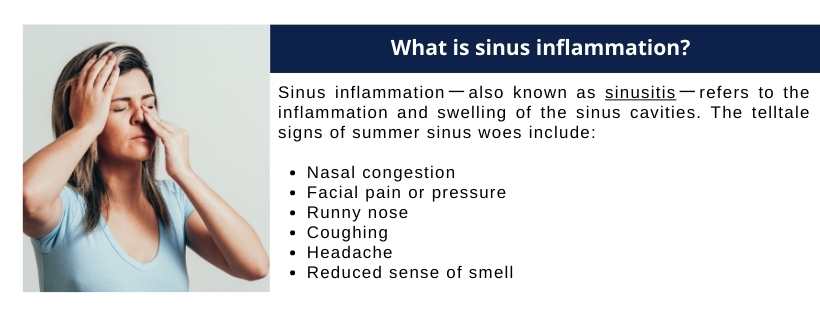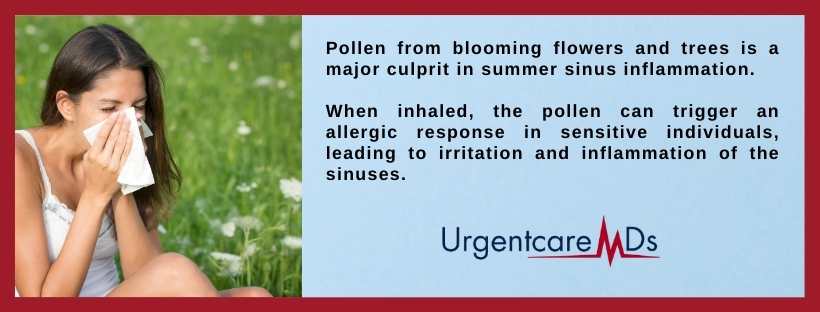Sunburn Care: When to Seek Medical Help for Bad Sunburn
Sunburn is more than just a summertime annoyance—it can have serious consequences for your skin and overall health. While most sunburns can be treated at home with proper care, there are situations when seeking medical help becomes crucial.
In this guide, we’ll delve into the signs and symptoms that indicate a bad sunburn and explore when it’s time to escalate your sunburn care to a medical professional.
What is sunburn?
Sunburn is a painful and damaging skin condition caused by overexposure to ultraviolet (UV) radiation from the sun or artificial sources like tanning beds.
It occurs when the skin’s protective pigment一melanin一is overwhelmed by excessive UV rays. This leads to inflammation, redness, and in more severe cases, blistering.
How does sunburn occur?
Sunburns occur when ultraviolet (UV) radiation from the sun damages your skin cells. The body’s defense mechanism responds by increasing blood flow to the affected area, resulting in redness, inflammation, and discomfort.
Prolonged exposure can lead to DNA damage, potentially increasing the risk of skin cancer. In more severe cases of sunburn, the body may form blisters as a protective measure. Blisters contain clear fluid and are a sign of second-degree burns.
What are the different degrees of sunburn?
Sunburn can be classified into different degrees based on its severity, ranging from mild to severe. These classifications help to understand the extent of skin damage and guide appropriate treatment. Here are the commonly recognized degrees of sunburn:
- First-degree sunburn (Mild)
Symptoms: Redness, warmth, and mild pain in the affected area.
Characteristics: Skin appears red, may be slightly swollen, and feels sensitive to touch.
Healing time: Typically heals within a few days to a week with proper care.
- Second-degree sunburn (Moderate)
Symptoms: More intense redness, swelling, pain, and the possibility of blisters.
Characteristics: Skin blisters may form, and the affected area is more painful and sensitive.
Healing time: It can take up to two weeks to heal, and blisters may take longer.
- Third-degree sunburn (Severe)
Symptoms: Severe redness, intense pain, widespread blistering, and potential systemic symptoms.
Characteristics: Extensive blistering, deep tissue damage, and a risk of infection.
Healing time: Healing time varies, and medical attention is often required to prevent complications.
How do you know if a sunburn requires medical help?
Sunburn severity varies, so how do you know when it’s more than just a temporary discomfort? A bad sunburn goes beyond the surface redness and may involve the following:
- Blistering: When your skin forms blisters, it’s a sign of a more severe burn. Sometimes the blisters will cover a large area or show signs of infection.
- Intense pain: If sunburn causes extreme pain, it might indicate deeper tissue damage or second-degree burns.
- Fever and chills: These systemic symptoms could indicate a significant sunburn affecting your body’s balance.
If you experience any of these symptoms, then it’s time to seek an urgent care facility or primary care physician in Baytown, TX.
What are the different treatment options for sunburn?
Sunburns are usually treated depending on their degree or severity. Your doctor will assess your condition and recommend appropriate treatment options. This includes the following:
At-home sunburn care
Treating sunburn at home requires a combination of soothing remedies and proper care to help alleviate discomfort and promote healing. Here are several at-home sunburn care tips:
- Cool compresses: Apply cold, damp cloths or take cool showers to help reduce skin temperature and ease inflammation.
- Hydration: Drink plenty of water to stay hydrated and counteract the dehydrating effects of sunburn.
- Moisturize: Apply a gentle, alcohol-free moisturizer or aloe vera gel to soothe dry and irritated skin.
- Over-the-counter pain relief: Non-prescription pain relievers like ibuprofen or aspirin can help manage pain and reduce inflammation.
- Stay out of the sun: Protect your sunburned skin from further exposure by staying in the shade or wearing protective clothing. However, protective clothing should be made of soft cloth so as not to irritate or cause discomfort to the sunburned skin.
- Avoid hot water: Use lukewarm water instead of hot water when showering to avoid aggravating the sunburned skin.
- Hydrotherapy: Add colloidal oatmeal, baking soda, or Epsom salts to a cool bath to soothe itching and discomfort.
- Stay cool: Use fans or air conditioning to keep your environment cool and reduce sweating that can exacerbate sunburn.
- Stay hydrated: Drink water, herbal teas, and clear broths to help maintain hydration and support healing.
- Avoid sunburned areas: If possible, try to minimize pressure or contact on sunburned areas to prevent additional irritation.
These tips can provide relief for mild sunburns only. If you have severe sunburn with blistering, intense pain, or other concerning symptoms, it’s important to seek medical attention.
Medical treatment for severe sunburn
Medical treatment for severe sunburn is important to prevent complications, manage pain, and promote healing. Here are some medical treatments that physicians may employ for severe sunburn:
- Prescription medications: Doctors may prescribe pain relievers and anti-inflammatory drugs to manage discomfort and swelling. It may be taken orally or intravenously, depending on the severity of your condition.
- Topical treatments: Specialized creams or ointments can aid healing and reduce infection risk. Over-the-counter topical steroids (e.g., hydrocortisone) can also help reduce redness and inflammation.
- Hydration and monitoring: In extreme cases, hospitalization might be needed for intravenous fluids and close observation.
- Cooling techniques: In severe cases, healthcare providers may use specialized cooling techniques, such as cool water immersion or cold compresses, to bring down skin temperature and reduce inflammation.
How to protect yourself from sunburn?
Protecting yourself from sunburn is essential to maintain the health of your skin and reduce the risk of skin damage and skin cancer. Here are effective sun protection strategies to help prevent sunburn:
Apply sunscreen
- Use a broad-spectrum sunscreen with SPF 30 or higher.
- Apply generously to all exposed skin at least 15 minutes before going outdoors.
- Reapply every two hours or more often if swimming or sweating.
- Protect your lips from sunburn by using a lip balm with SPF.
Seek shade
- Stay in the shade, especially during the peak sun hours of 10 a.m. to 4 p.m.
- Use umbrellas, trees, or other structures to create shade.
Wear protective clothing
- Cover your skin with long-sleeved shirts, pants, and wide-brimmed hats.
- Choose tightly woven fabrics that provide better sun protection.
- Look for clothing with UPF (Ultraviolet Protection Factor) labels for added sun protection.
- Wear sunglasses with UV protection to shield your eyes and the delicate skin around them from UV rays.
Limit time in the sun
Reduce sun exposure, especially during the peak hours when UV radiation is strongest. The peak hours when UV rays are the strongest typically occur between 10 a.m. and 4 p.m. The sun is at its highest point in the sky during this time, and UV radiation is most intense.
Stay hydrated
Drink plenty of water to stay hydrated and maintain healthy skin. This is especially true for people who spend most of their time outdoors, may it be for work or any activities.
Avoid tanning beds
Tanning beds emit UV radiation that can cause skin damage and increase the risk of skin cancer. Avoid them altogether.
Remember that sunburn can occur even on cloudy or cool days, as UV radiation can penetrate clouds and affect your skin.
So, consistently practicing these sun protection measures is crucial for maintaining healthy skin and reducing the risk of sunburn and related skin issues.
Where to find the best urgent care near me?
UrgentcareMDs is your trusted partner for immediate healthcare solutions. Our dedicated team of experienced medical professionals is ready to provide timely care when you need it the most—no more waiting for appointments or enduring long ER queues.
With convenient locations across the city, access to quality healthcare has never been easier. Find an UrgentcareMDs center near you for quick and hassle-free care.
Contact us now to learn more!
The material contained on this site is for informational purposes only and DOES NOT CONSTITUTE THE PROVIDING OF MEDICAL ADVICE, and is not intended to be a substitute for independent professional medical judgment, advice, diagnosis, or treatment. Always seek the advice of your physician or other qualified healthcare providers with any questions or concerns you may have regarding your health.



